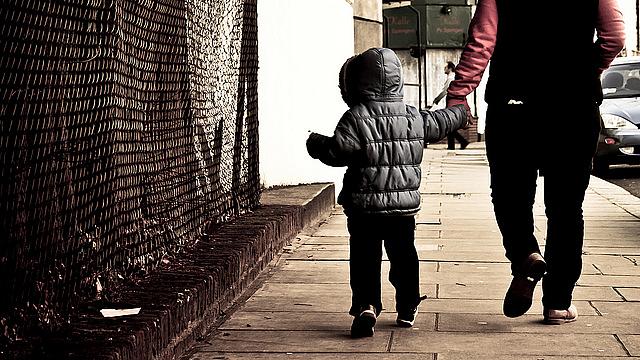Push to enroll California's undocumented kids in Medicaid gets underway

On Monday, California is scheduled to begin enrolling undocumented kids in the state’s Medicaid program. The expansion of coverage, signed into law by Gov. Jerry Brown last June, allows low-income undocumented kids to receive full-scope health coverage under Medi-Cal, the state’s Medicaid program.
California isn’t the first state to expand coverage to undocumented kids, but it’s by far the biggest. (Illinois, New York, Washington, Massachusetts and D.C. already cover undocumented kids.) While California’s move to cover more kids is read as champagne-worthy by children’s health advocates, it’s also been widely seen as the lowest-hanging fruit in the campaign to expand coverage to all the state’s undocumented low-income residents.
The expansion, which applies to kids under 19 whose families make less than 266 percent of the federal poverty level, is expected to cover about 185,000* California children. The program goes into effect May 16 and is projected to cost $40 million this year and $132 million annually after that. Some 115,000 undocumented children already enrolled in the state’s emergency Medi-Cal program will automatically be enrolled in full coverage. Since federal funds can’t be used to provide care for undocumented immigrants, the state must pay the full tab for covering these kids.
Here are a few questions worth keeping tabs on as enrollment proceeds:
1) What kind of outreach is taking place in your area to enroll eligible children?
2) To what extent are parents’ fears about revealing immigration status impeding enrollment of eligible children?
3) How are enrollment numbers lining up with projections? (Medi-Cal expects about 27,500 kids will enroll in the first year.)
4) Are families with newly enrolled children able to access care once enrolled?
Some hints to that last question can be found in the existing research. Overall, children enrolled in Medicaid and CHIP tend to access primary care about as well as privately insured kids, according to a research summary from the Kaiser Family Foundation. But some studies have found Medicaid and CHIP kids have a tougher time accessing specialists, compared with privately insured kids. California’s problem-plagued dental program for Medicaid beneficiaries was called an “outright mess” in an April report.
But access to doctors isn’t the same thing as improved health outcomes, and that’s where the research gets more complicated. “Evidence about the impact of Medicaid and CHIP expansions on health status is mixed — some studies show a positive impact and some show no impact,” the Kaiser brief states. Studies have differed on whether hospitalizations drop after enrollment, while a 2010 study reported a 3 percent drop in child mortality after Medicaid/CHIP eligibility was expanded. Other research points to gains for kids at school following coverage.
It’s too early to say what health gains the expansion of Medicaid to California’s undocumented kids might produce. While it should at least improve access to primary and preventive care, it’s also worth noting that undocumented kids will still find it hard to get to the doctor if they don’t have transportation, live in rural areas and have parents who struggle to get time off work.
Now that the legislative push to cover undocumented children has been realized, advocates are once again lobbying to expand coverage to adults. As Soumya Karlamangla wrote in a recent story for the Los Angeles Times, covering kids was a relatively easy victory for advocates “because of kids’ emotional appeal and their low medical expenses,” compared with the effort to expand insurance to their older family members:
The remaining frontier — covering adults — will be a much tougher sell — and a more significant test of California's larger push to provide additional services to those here illegally.
Forays into the frontier are already underway. California’s proposed SB 10 would direct the state to apply for a federal waiver that would allow undocumented residents to buy health insurance on Covered California, the state health exchange, but without the crucial benefit of subsidies. It amounts to a more incremental version of like-minded legislation that foundered last year, which would’ve expanded health benefits to low-income undocumented residents.
If such legislation is ever enacted, the effort to enroll newly eligible illegal immigrants would likely face many of the same challenges — in particular, reticence to sign up due to fears surrounding immigration status. That makes the currently developing story on the effort to enroll kids a useful bellwether for how a broader expansion of health benefits to undocumented Californians might unfold.
* This number has been updated based on Gov. Brown's May budget revision released on May 13.
[Photo by Hernán Piñera via Flickr.]

